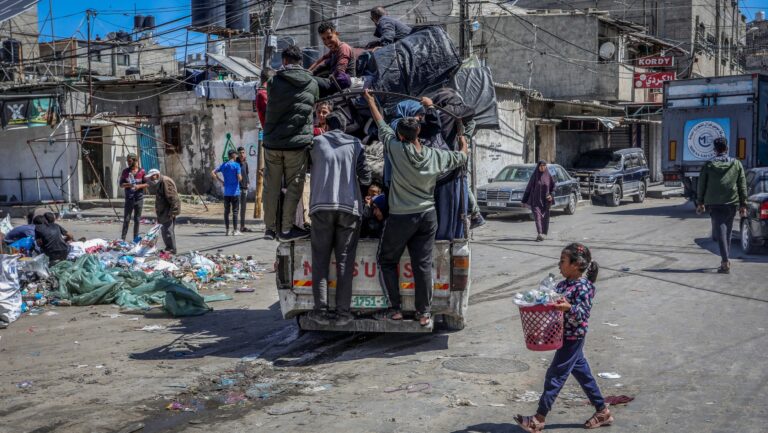5, when Hamas initiated the conflict. “We urge the Biden Administration to ensure that the delivery of these weapons proceeds expeditiously,” the AJC said in a statement. “We also urge the Administration to do everything in its power to help bring a swift end to the conflict.”
Administration officials are also monitoring the impact of the pause on Israel’s ability to defend itself against attacks from Gaza. Kirby said that the administration is “very mindful of the current security situation in Israel” and that “we are committed to Israel’s security.”
He added that the pause in weapons shipments is “not meant to signal any change in U.S. policy” toward Israel, which he described as “rock solid.”
“We’re not walking away from our security commitments to Israel,” Kirby said. “This is a unique situation that we’re dealing with in Rafah.”
The White House official said the administration’s actions are “consistent with our long-standing commitment to Israel’s security and right to self-defense.”
Israel, for its part, has expressed frustration with the U.S. pause in weapons shipments. Defense Minister Benny Gantz said in a statement that “the U.S. decision certainly makes things more difficult for Israel” and that Israel is “certainly not happy with it.”
Despite the pause, the Israeli military continued its operations in Rafah last week, targeting Hamas infrastructure and militants. The operation has resulted in heavy casualties on both sides, with hundreds of Palestinians and dozens of Israelis killed.
Israeli officials have defended the operation as necessary to root out Hamas terrorists and destroy their military capabilities. They have also accused Hamas of using civilians as human shields and hiding weapons in civilian areas.
The Biden administration, while expressing concern about civilian casualties, has not called for an immediate halt to the Israeli operation in Rafah. Instead, officials have focused on urging Israel to take steps to minimize civilian harm and ensure access to humanitarian aid.
“We are focused on urging de-escalation, protecting civilians, and delivering humanitarian assistance to those impacted by the conflict,” the White House official said.
Despite the tensions over the pause in weapons shipments, both the U.S. and Israel have expressed a commitment to maintaining their close security relationship. Austin, in his Senate testimony, emphasized that the U.S. remains “fully committed to Israel’s security” and that the two countries are “working closely together to address shared security challenges.”
“We are in close touch with our Israeli partners,” Austin said. “We are assisting in a dialogue to address their concerns and needs, and we will continue to work together to ensure Israel’s security and the security of the region.”
As the conflict in Rafah continues to unfold, the Biden administration faces a delicate balancing act between supporting Israel’s right to self-defense and ensuring the protection of civilians in the conflict zone. The pause in weapons shipments is just one example of the challenges and complexities involved in navigating the Israeli-Palestinian conflict.
As the situation evolves, the administration will continue to monitor developments closely and engage with both parties to seek a resolution to the conflict that addresses the legitimate security concerns of Israel while also upholding the rights and dignity of all civilians caught up in the violence.
“AJC is grateful for the unprecedented security assistance the U.S. administration has surged to Israel as it defends itself against Hamas terrorists, and for the ongoing, close collaboration between U.S. and Israeli officials,” the group said in a tweet.
“This support must continue without any additional conditions or delays, so Israel can defend itself from the multiple threats it faces and prevent Hamas’ stated goal of continued, repeated attacks,” it said. “We expect the Administration to swiftly ensure all necessary assistance is delivered.”

